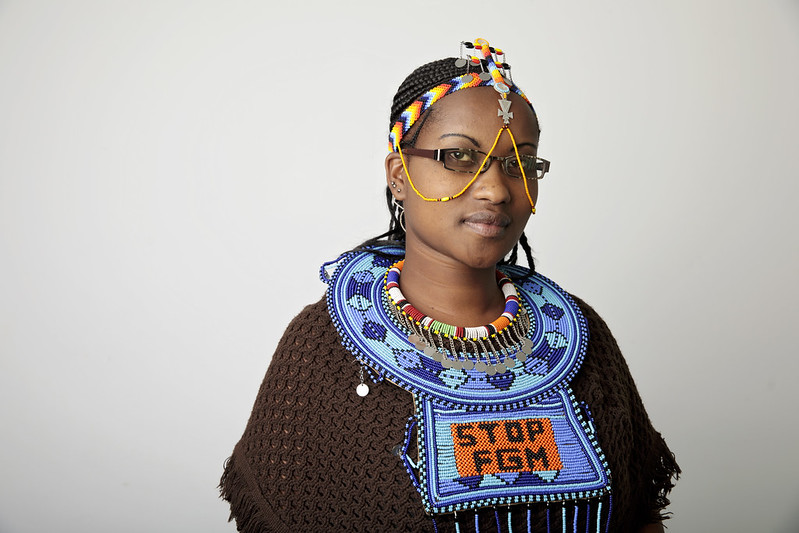The Link Between Poverty and FGM/C: Breaking the Cycle
 Every 12 minutes, a girl dies as a result of female genital mutilation/cutting (FGM/C) – a practice with no medical purpose and devastating consequences. Now the fourth leading cause of death among girls and young women in Africa, FGM/C affects more than 230 million people worldwide. Despite the tireless efforts of dedicated organizations working to end this violence, the global response remains alarmingly muted.
Every 12 minutes, a girl dies as a result of female genital mutilation/cutting (FGM/C) – a practice with no medical purpose and devastating consequences. Now the fourth leading cause of death among girls and young women in Africa, FGM/C affects more than 230 million people worldwide. Despite the tireless efforts of dedicated organizations working to end this violence, the global response remains alarmingly muted.
The Link between Poverty and FGM/C
Although many recognize FGM/C as a serious violation of human rights, it continues to persist in certain communities where cultural and social traditions deeply weave it into community life. In these societies, the practice is often upheld under the guise of religious or traditional values, with generations passing it down to preserve cultural identity.
Beyond cultural continuity, FGM/C is often justified by rigid gender norms and beliefs. In some contexts, a prevailing notion suggests that controlling a girl’s sexuality from an early age is necessary. By curbing her desires, families believe they safeguard her virginity, prevent perceived moral transgressions, and ensure marital fidelity. Some proponents also argue that FGM/C promotes hygiene and aesthetic appeal. They hold the belief that female genitalia are inherently impure and that girls who have not undergone the procedure are considered unclean or undesirable for marriage.
Poverty’s Role in the Persistence of FGM/C
Poverty and FGM/C are increasingly recognized as deeply connected, with poverty serving as a significant driver in the persistence of FGM/C. Research published in the journal Reproductive Health underscores the strong influence of socio-economic and demographic factors on the prevalence of FGM/C across sub-Saharan Africa. Findings indicate that the practice is more common among women and their daughters in the lowest wealth quintiles, while its prevalence declines with higher levels of education.
These patterns suggest that poverty not only increases the likelihood of undergoing FGM/C but also contributes to a broader cycle in which communities subject girls to the practice, marry them off at a young age and deny them educational opportunities – thereby perpetuating intergenerational poverty. In many impoverished communities, women and girls often remain unaware of their rights or the protections available to them regarding FGM/C. Many in the community view the practice as a cultural duty and those who refuse to undergo it may face severe criticism, stigma and social exclusion.
Safe Hands for Girls
Jaha Dukureh founded Safe Hands for Girls in 2013. She created a survivor-led women’s rights organization dedicated to ending FGM/C and gender-based violence. Since its inception, the organization has implemented initiatives such as the SAFE Training Program. This program equips law enforcement and health care professionals in the United States (U.S.) with the knowledge to identify signs of FGM/C and enforce the Stop FGM Act of 2020. This training is critical, as an estimated 513,000 women and girls in the U.S. have undergone or are at risk of FGM/C.
In 2025, the organization launched Regenerative Hubs, an international program training women farmers in regenerative agriculture across rural communities in the Gambia and Ghana. This initiative links economic empowerment to the eradication of FGM/C, child marriage and domestic violence.
Men End FGM
Tony Mwebia launched the #MenEndFGM campaign online in 2013. The initiative is based on the understanding that, in many patriarchal African societies, men hold significant power as fathers, breadwinners, religious and political leaders and custodians of tradition. Engaging men and boys is therefore essential to advancing the elimination of FGM/C. By 2015, young Kenyan activists had joined the movement. In 2019, it was formally registered as the Men End FGM Foundation.
Brothers for Balance, one of its key initiatives, promotes male advocacy for gender equality by working with cultural and religious leaders who can influence their communities. It also trains a network of Men End FGM advocates across 22 hotspot counties to challenge and change harmful social norms. Additionally, the Boy Guard Movement empowers boys and young men to become agents of change from an early age. The Positive Parenting Forum brings together fathers, mothers and their children to foster open dialogue on FGM/C, menstrual health and child marriage.
Sahiyo
While most international funding to prevent FGM/C is directed toward Africa, regions such as Asia, Latin America and the Middle East remain significantly under-resourced. Sahiyo, founded in 2015 by a group of women united against FGM/C, works to empower Asian communities to end the practice. Among its key initiatives is Voices to End FGM/C, a global storytelling project that organizers launched in 2018. It mobilizes survivors to share their experiences and normalize conversations around the FGM/C.
Since its inception, Sahiyo has conducted nine workshops under this initiative. This has resulted in 88 videos and more than 120,000 views across social media platforms. Another impactful program is Thaal Pe Charcha (TPC), Sahiyo’s flagship initiative in India since 2017. TPC draws from the Dawoodi Bohra tradition of communal meals. It creates safe, private spaces where men and women can share stories, ask questions and engage in dialogue around FGM/C.
Moving Forward
Poverty and FGM/C remain interconnected challenges that disproportionately affect girls and women in vulnerable communities. Indeed, socioeconomic disadvantage limits access to education, health care and legal protections, creating conditions where harmful practices continue. Progress toward eliminating FGM/C by 2030 potentially requires greater investment in education, economic empowerment and local advocacy efforts. Sustained action from governments, communities and international organizations could be necessary to ensure that future generations grow up free from the threat of FGM/C.
– Charlotte Codd
Charlotte is based in Waterford, Ireland and focuses on Good News and Technology for The Borgen Project.
Photo: Flickr
